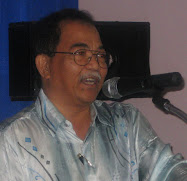Malaysia’s PM faces a struggle to stay in power.
Malaysian Prime Minister Najib Razak dissolved parliament Wednesday, setting the stage for the country’s 13th general election, probably at the end of the month. According to the constitution the polls could be held no later than June 27, so Mr. Najib’s move was no surprise. The fact that he waited as long as he did is one of many signs that the Prime Minister faces a struggle to stay in power.
 Part of the challenge comes from within his own party. After five decades in power, the United Malays National Organization is riddled with corruption and complacency. In the 2008 election, Mr. Najib’s predecessor Abdullah Badawi barely held on to a parliamentary majority, and afterward the opposition almost succeeded in tempting enough MPs to cross the aisle to form a new government.
Part of the challenge comes from within his own party. After five decades in power, the United Malays National Organization is riddled with corruption and complacency. In the 2008 election, Mr. Najib’s predecessor Abdullah Badawi barely held on to a parliamentary majority, and afterward the opposition almost succeeded in tempting enough MPs to cross the aisle to form a new government.That set the stage for Mr. Najib to take over the party leadership and premiership in 2009. He shored up his coalition by pursuing a program of economic and political reforms that tackled many of the issues that the opposition championed in 2008. This government deserves credit for responding to the public’s dissatisfaction with corruption, lack of domestic competition and repressive laws left over from the colonial period.
However, these reforms were limited, and while they were good for the country, they may not translate into a victory for Mr. Najib. The population is young and increasingly urban, and many of these voters think the pace of reform has been too slow, especially in reforming the system of affirmative action for the ethnic majority Malays. Meanwhile, the Malays out in the villages who benefit most from the preferences and cash handouts find the changes threatening.
The conservative Malay constituency is well represented by nationalist politicians within UMNO, including Home Minister Hishamuddin Hussein and Deputy Prime Minister Muhyiddin Yassin. Both are potential challengers for Mr. Najib’s position, so it’s no coincidence that his policies have been undermined from within the party.
The opposition coalition has its own cohesion problems that will probably come to the fore if it wins this election. But it has done a creditable job of ruling the four states under its control, undermining the government’s argument that only it has the chops to keep Malaysia stable and growing.
Malaysia’s system of holding back the dynamic Indian and Chinese minorities has turned it into a bastion of mediocrity in a fast-growing region. The country’s best and brightest leave because the cronyism and racial quotas in education and employment hold them back.
Mr. Najib probably recognizes the need to move faster, but he can’t afford to alienate his Malay base. In the coming weeks, UMNO’s list of candidates will tell the electorate much about internal party politics. If the Prime Minister doesn’t move aggressively to sideline the Malay nationalists and put his own reformers in place, voters may reasonably conclude that it’s time to give the opposition its chance to overcome Malaysia’s feudal past. A competitive economy ultimately demands plural politics.







No comments:
Post a Comment